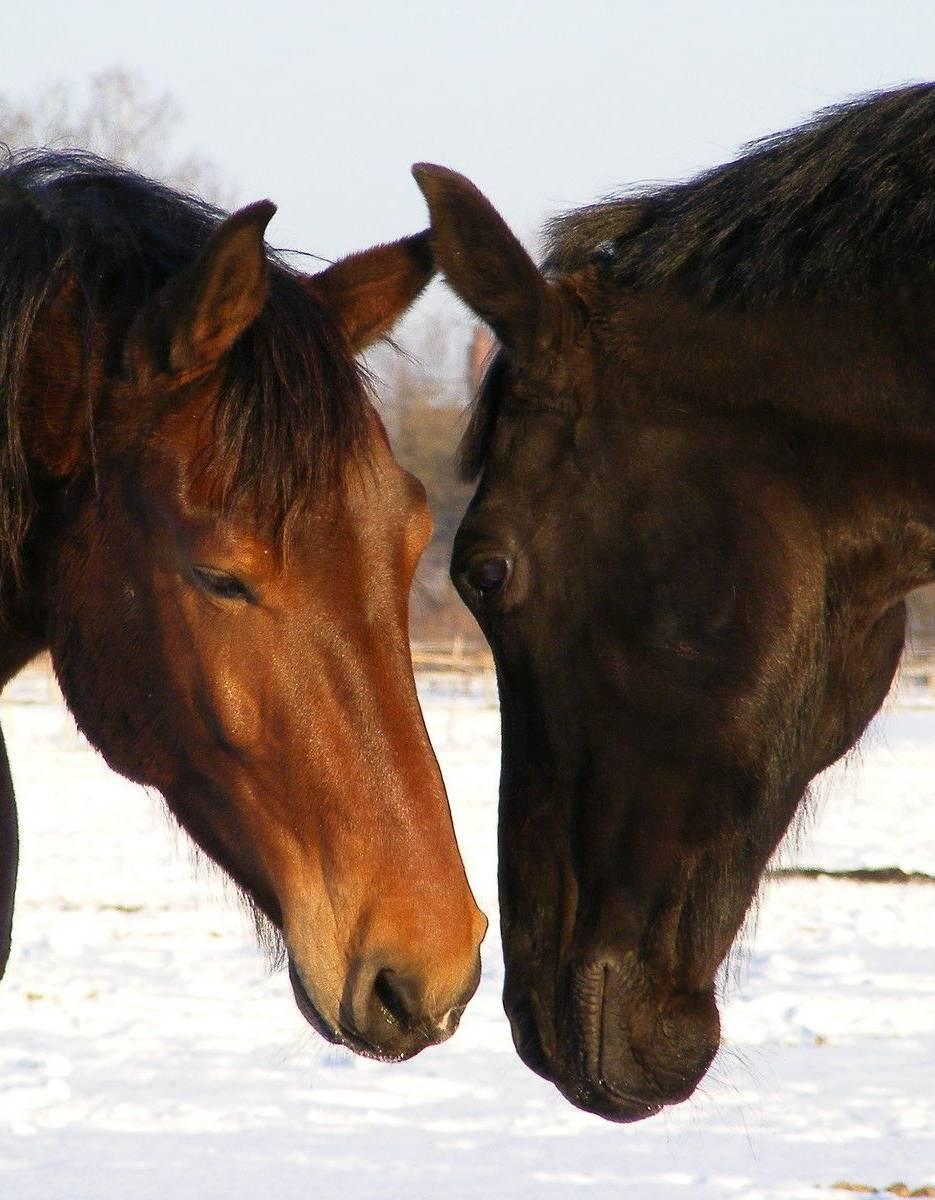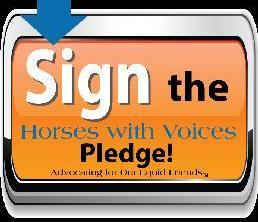
5 minute read
HORSES WITH VOICES: BE YOUR EQUID’S ADVOCATE
a d v o c a c y Horses with Voices: Be Your Equid’s Advocate
The PPG Equid Committee has launched its Horses with Voices initiative to raise awareness of equine welfare issues and education that is accessible to all
Advertisement
“The Horse. Here Is Nobility Without Conceit, Friendship Without Envy, Beauty Without Vanity. A Willing Servant, Yet Never A Slave.”— Ronald Duncan (1954)
PPG has launched its Horses with Voices initiative, the primary aim of which is to improve companion equid* welfare by educating and empowering owners to commit to a higher standard of care for all species, from stabling practices to training practices and more.
Horses with Voices takes the format of a sevenpoint pledge whereby owners, guardians and caretakers commit to advocating for their equid companions while striving to create a harmonious and equal partnership with them. Each individual point is then broken out into a supporting document that provides further details and guidance.
Horses with Voices is a movement, a paradigm shift within the equid world, empowering equids by giving them a voice in their care and training; empowering equid enthusiasts worldwide to adopt more equidconsiderate approaches in caring for their equids; and empowering every equid guardian to embrace the science of equid emotion, learning, and behavior.
Evolving Science
Why do we need to give horses and their equid friends a voice? Because the science of equid behavior and training continues to evolve. We have a broader understanding of the speciesspecific needs of our equids— needs that often remain unmet with current stabling and training practices. We have a growing body of knowledge proving that horses trained utilizing positive reinforcement learn faster, learn more complex skills, and are safer to work with than their counterparts trained using forceful methods.
By giving voice to equids—and the people who work with them— we open a door to the complex, rich emotional worlds our equids live within. We give them better lives.
“Supporters sign the pledge to make a commitment to themselves and their equine(s) to be their best, learn, progress, and stand up for equines by advocating for their best interests,” explains PPG Equid Committee cochair Mary Richards. “Broadly speaking, the topics we cover are education, relationships, and communication, so that we can understand and communicate effectively with our equine partners, friends, and companions. All of the seven pledge items have support in the form of what this means for the individual and their equid, links to relevant information, and contact details of professionals who can answer questions and guide people further.”
“With this program, we hope to raise awareness and improve education in all areas of equid care, for all equid species,” adds PPG Equid Committee cochair Michelle Martiya. “I’m excited about this program because I feel it gives all equid owners, from horses to donkeys, to mules and zebra, guidelines they can easily follow to improve the welfare of their animals.”
Join us in pledging and committing to the key principles which truly give our equid friends a voice in their care and training. n
*Equid [definition]: Any of various mammals of the family Equidae, having a single hoofed digit on each foot, which includes horses, don‐keys, and zebras. (Your Dictionary, 2021)
The Horses with Voices Pledge
1. Guardian Education – Be 1. Guardian Education – Be Committed to Ongoing Education Committed to Ongoing Education
• I will commit to continually learning more about equine behavior to help me better understand what my equid is communicating via their body language, vocalizations, and facial expressions. • I will commit to staying up to date on sciencebased behavior research and will be fully receptive to taking onboard new information. • I will commit to being informed by science, guided by empathy, and governed by ethics.
2. Equine Teaching - Methods, 2. Equine Teaching - Methods, Approaches, and Philosophy Approaches, and Philosophy
Methods • I will commit to only using teaching methods that promote the physical and emotional wellbeing of my equid. • I will train my equid based on the latest scientific behavioral research. • I will teach my equid to make their own choices and listen to what they voice – unless it may be unsafe for them to do so.
Approach • I will work to combine an understanding of the equid species, their needs, and their perspective. • I will always consider my individual equid’s needs over the collective needs of equids. • I will create trust between myself and my equid to develop an equal partnership based on teamwork.

Philosophy • I will not only seek to do no harm; I will seek to always do good. • I will empower my equid to have control and choice over appropriate areas of their life. • I will promise to always treat my equid with empathy, dignity, and respect.
3. Relationships – The Partnership 3. Relationships – The Partnership Interaction Interaction
• I will respect my equid as a partner in all interactions. • I will recognize that equids are sentient beings and that they form close bonds with their human partners. • I will strive to treat my equid as family, as far as is practical and possible.
4. Empowerment - Preference and 4. Empowerment - Preference and Consent Testing Consent Testing
• I will encourage my equids to express their emotions and preferences. • I will diligently learn to understand and listen to what my equid is communicating. • I will acknowledge and take appropriate action in response to my equid’s “yes” and “no” communications, and when they are conflicted.
5. Management - Environment and Management - Environment and Meeting Species’ Needs Meeting Species’ Needs
• I will always strive to fulfill my equid’s speciesspecific needs by focusing on the 3 F’s: • Freedom to graze, walk, play, and roll. • Physical access to other equids as Friends. • Continual access to Foraging which meets the design of the equid digestive tract. • I will commit to providing my equid with fresh water, adequate space, and access to clean, comfortable, safe shelter. • I will always be considerate of my equid’s safety and comfort when caring, managing, and handling them in any manner.
6. Equine Communication and 6. Equine Communication and Social Behavior - Understanding Social Behavior - Understanding Equid Species’ Behavior Equid Species’ Behavior
• I will commit to understanding speciesspecific social behavior and communication patterns in order to understand the individual communication topography of my equid. • I will endeavor to understand how equine emotions drive behavior and their underlying impact on my equid’s observable behavior.
7. Responsibility - Be Your Equid’s 7. Responsibility - Be Your Equid’s Advocate Advocate
• I will continually advocate for my equid from an environmental, physical, and emotional perspective. • I will advocate for my equid in all life stages, ensuring their individual and unique needs are met.

Coming soon ‐ Pledge Implementation Support Tools – Watch this space!
© Can Stock Photo / Virgonira










